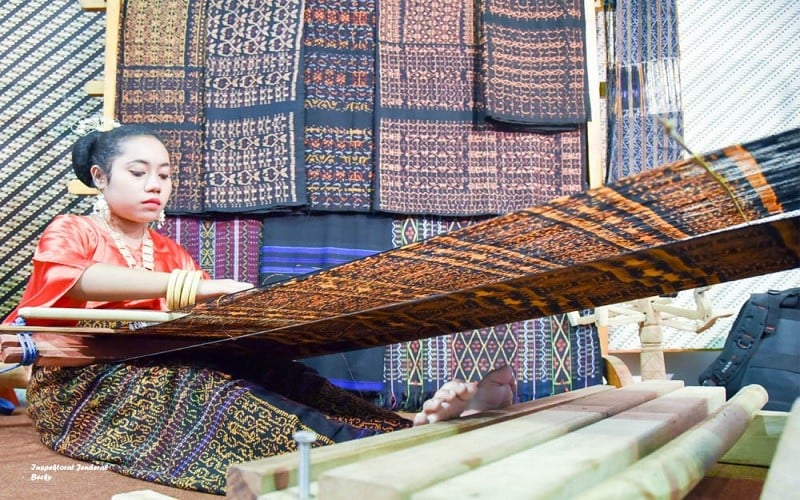In the lush highlands of North Sumatra, the Karo people weave more than fabric—they weave stories of identity, resilience, and spirituality. Yet few realize that this traditional cloth has also found a meaningful place within the santri world. Beyond its vibrant colors and intricate geometric patterns, Karo cloth embodies values that resonate deeply with Islamic teachings.
Weaving Identity: A Sense of Belonging and Connection

For many santri, Karo cloth is more than just material; it is a symbol of history, dignity, and quiet resistance against injustice. Honoring such textiles can be considered a form of dakwah bil hal (preaching by example)—a way of living Islamic values while upholding adat (customary tradition).
The geometric motifs common in Karo textiles reflect not only artistic heritage but also spiritual principles. The patience (sabr) required in the weaving process mirrors the perseverance of santri in their pursuit of deeper faith. These interlaced patterns symbolize ukhuwah (brotherhood), echoing the Qur’anic command to “hold firmly to the rope of Allah” (QS. Ali Imran: 103).
Historically, during Dutch colonial rule, the Karo people used this cloth to blend in while preserving their cultural identity. Similarly, santri today may face skepticism when wearing adat-inspired clothing, yet they persist in maintaining authenticity—honoring both their faith and heritage.
For santri of Karo descent, wearing Karo cloth reaffirms a dual identity: pride in their lineage and grounding in Islam. This textile is not a contradiction but a convergence of cultural pride and spiritual devotion. As one Karo santri expressed, “The threads strengthen the fabric just as faith strengthens my identity.” Through this lens, Karo cloth becomes spiritual armor—rooted in the past yet oriented toward a faithful future.
Beyond Uniforms: Preserving Heritage Through Education






